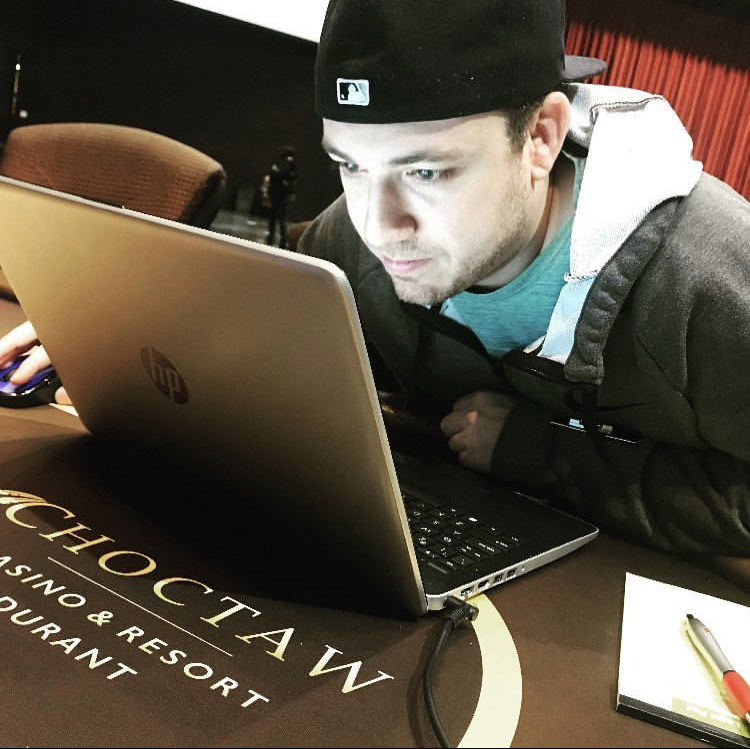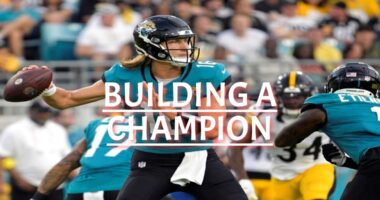Skip to content

Ever since last year, a potential Florida sports betting market became one of the most sought-after regions for some of the country’s largest sports betting operators.
DraftKings and FanDuel were two of the most active non-Florida entities trying to gain access through a failed ballot initiative. But now, there’s an even larger company that may look to enter the fray.
Last week, Disney CEO Bob Chapek said that the company would not be selling its stake in ESPN. Not because the sports media company was generating a lot of revenue in its current model. But because Chapek believes that ESPN is the easiest way for Disney to enter the sports betting market.
“Sports betting is part of what our younger, say, under-35 sports audience is telling us they want as part of their sports lifestyle,” said Chapek.
When asked if the company was working on an ESPN-branded sports betting app, Chapek said the company was “working very hard on that.”
Disney changes its tune on gambling
Chapek’s comments cement a clear shift in the company’s stance on gambling. Late last year, he said on an earnings call that sports betting was “something that we’re keenly interested in and are pursuing aggressively.”
However, Disney was not typically a supporter of the gambling industry. The company was always steadfast in its opposition to any gambling expansion. Especially when it came to the Sunshine State.
The Walt Disney Company is one of the largest employers in Florida. That’s almost entirely due to its four theme parks and two water parks in the Orlando area.
For decades, Disney World was one of Florida’s biggest drivers of tourism, and it was marketed as a family-friendly experience. As a result of its image, Disney was always a vocal opponent to any legislation bringing gambling near its parks.
To be clear, Disney still doesn’t want to be associated with Florida sports betting. But it appears the company is willing to facilitate it if it can be done behind the ESPN brand.
Even as gambling became more mainstream and the Seminole Tribe broadened its offerings through the 2010 gaming compact, Disney was vocal in opposition to Florida’s gambling expansion. It was unable to stop the state from spreading its gambling industry. But it did manage to keep casinos and pari-mutuels out of Disney World’s general vicinity.
Amendment 3 benefits from Disney’s deep pockets
Even as recently as 2018, the company actively tried to curb the Florida gambling market.
Disney and the Seminoles were two of the biggest supporters of Amendment 3. The proposal essentially stated that the voters must approve any further gambling expansion.
At the time, it was viewed as an initiative to curb any addition to the Florida gaming market. The Seminoles supported it because it would further its stranglehold on the state’s casino industry, and Disney would continue to suffocate any effort to bring gambling to Central Florida.
Voters in Charge was the only political action committee registered to support the measure. But it was well-funded.
The PAC received a combined $46.15 million from supporters of the proposal. Here are the top three contributors to that committee:
- Seminole Tribe – $24.35 million
- Disney Worldwide Services Inc. – $20.56 million
- No Casinos Inc. – $851,009
As you can see, Disney provided a massive sum to ensure Amendment 3 passed. They succeeded as the electorate overwhelmingly passed the initiative.
By comparison, the Vote No on 3 PAC was the only group opposing the measure. It received just $1.77 million.
Disney only enters the Florida sports betting market with a successful ballot initiative
In May 2021, Gov. Ron DeSantis and the Seminoles agreed to a new, 30-year gaming compact. Most notably, the new agreement would legalize sports betting in Florida.
However, under the ‘hub-and-spoke’ model in the deal, the tribe would act as the industry’s focal point. The compact gave the tribe exclusivity over online and mobile betting. Additionally, any pari-mutuel facility that opened a brick-and-mortar operation would pay the tribe 40% of its revenue.
This model is why the agreement is currently tied up in the federal court system. But it’s also why non-Florida entities poured money into a sports betting ballot initiative for 2022.
The proposal would allow pari-mutuel facilities, professional sports venues, and other non-tribal entities to operate online sportsbooks in Florida.
A PAC called Florida Education Champions undertook the signature gathering efforts. The group reported $41.09 million in contributions with the majority of funds coming from DraftKings and FanDuel.
The opposing PAC received roughly $40 million, and nearly all of it came from the Seminole Tribe. Ultimately, FEC failed to obtain the nearly 900,000 signatures to get the issue in front of voters this year.
But last April, the Florida Supreme Court ruled it would review the proposal. Consequently, the groups supporting the initiative won’t have to seek approval of the wording on their second try. In other words, the proposal has a head start for 2024.
If an ESPN sports betting app will ever be available to Florida bettors, this initiative needs to pass. Disney hasn’t explicitly stated its support for the initiative. But based on Chapek’s comments, it’s fair to assume they will.
Disney’s deep pockets could aid 2024 ballot initiative efforts
It’s almost certain that the tribe will look to slow the signature-gathering efforts once they start again. They were willing to dole out a mid-10-figure sum to stop the first attempt. And there’s no reason to believe the Seminoles won’t open up the checkbook to stop it a second time.
The Seminole-owned Florida casinos are some of the most profitable casinos in the country. The tribe’s monopoly on the Florida casino industry turned them into an economic powerhouse and one of the most influential groups in Florida politics.
But they’ve never fought against Mickey Mouse. Disney is one of the few companies that, from a revenue perspective, can stand toe-to-toe with the tribe.
If they decide to financially support the sports betting ballot initiative, there’s almost no way the opposition could outspend FEC. Between the funding from FanDuel, DraftKings and potentially Disney, the PAC would have an endless money supply.
This is already on top of the fact that the initiative was extremely likely to pass in 2024.
DeSantis isn’t a fan of Disney at the moment
The one thing that Disney doesn’t have in Florida now is any political capital with the governor. They have been at odds with one another since Disney was openly outspoken against a bill signed by DeSantis.
Earlier this year, DeSantis signed legislation prohibiting the discussion of sexual orientation or gender identity in public schools before fourth grade. Opponents of the bill argued that it would hurt LGBTQ children.
Disney was one of those outspoken opponents.
In response, DeSantis aimed at one of Disney’s biggest perks – the Reedy Creek Improvement District. The area is a special tax district where Disney’s theme parks reside.
The state legislature created the district in 1967 when it passed the Reedy Creek Improvement Act. The bill essentially allowed Walt Disney World Resort its governmental authority within the district’s boundaries.
Instead of relying on local government, Disney could provide some essential services for itself.
Shortly after Disney voiced its displeasure with the legislation, DeSantis signed another bill that would dissolve Reedy Creek. The legislation would effectively remove the district in June 2023, but there are already lawsuits being filed over the move.
Regardless of what happens with the district, it’s next to impossible for Disney World to leave Florida. Finding nearly 40 square miles in another state with weather suitable for theme parks year-round is hard enough. Let alone reconstructing the parks.
How does the DeSantis-Disney feud relate to sports betting? It doesn’t. At least not directly.
Just don’t expect the government to do any favors for Disney
Unlike Disney, DeSantis is on very good terms with the tribe. They donated $1 million to his re-election campaign in August.
Typically, companies as large as Disney are on good terms with the state government. These organizations employ large swaths of the population and generate massive tax revenue for state coffers.
The Disney situation is incredibly unique. Luckily, with the current landscape, there isn’t much DeSantis could do for Disney even if he wanted to.
Right now, if Disney wants to open a Florida online sportsbook through ESPN, the ballot initiative must be successful. However, there is one situation where the adversarial relationship dampens Disney’s sports betting hopes.
The D.C. Court of Appeals should rule on the compact early in 2023. If they uphold the district court’s ruling, invalidating the compact, the case will either head to the U.S. Supreme Court or DeSantis would go back to square one and negotiate an entirely new compact.
If the latter were to happen, DeSantis could carve out favorable language for Disney in a new sports betting model. But unless something drastic happens between now and then, there’s no chance anything good happens for Disney in the legislature.
Photo by Shutterstock / Jerome LABOUYRIE




